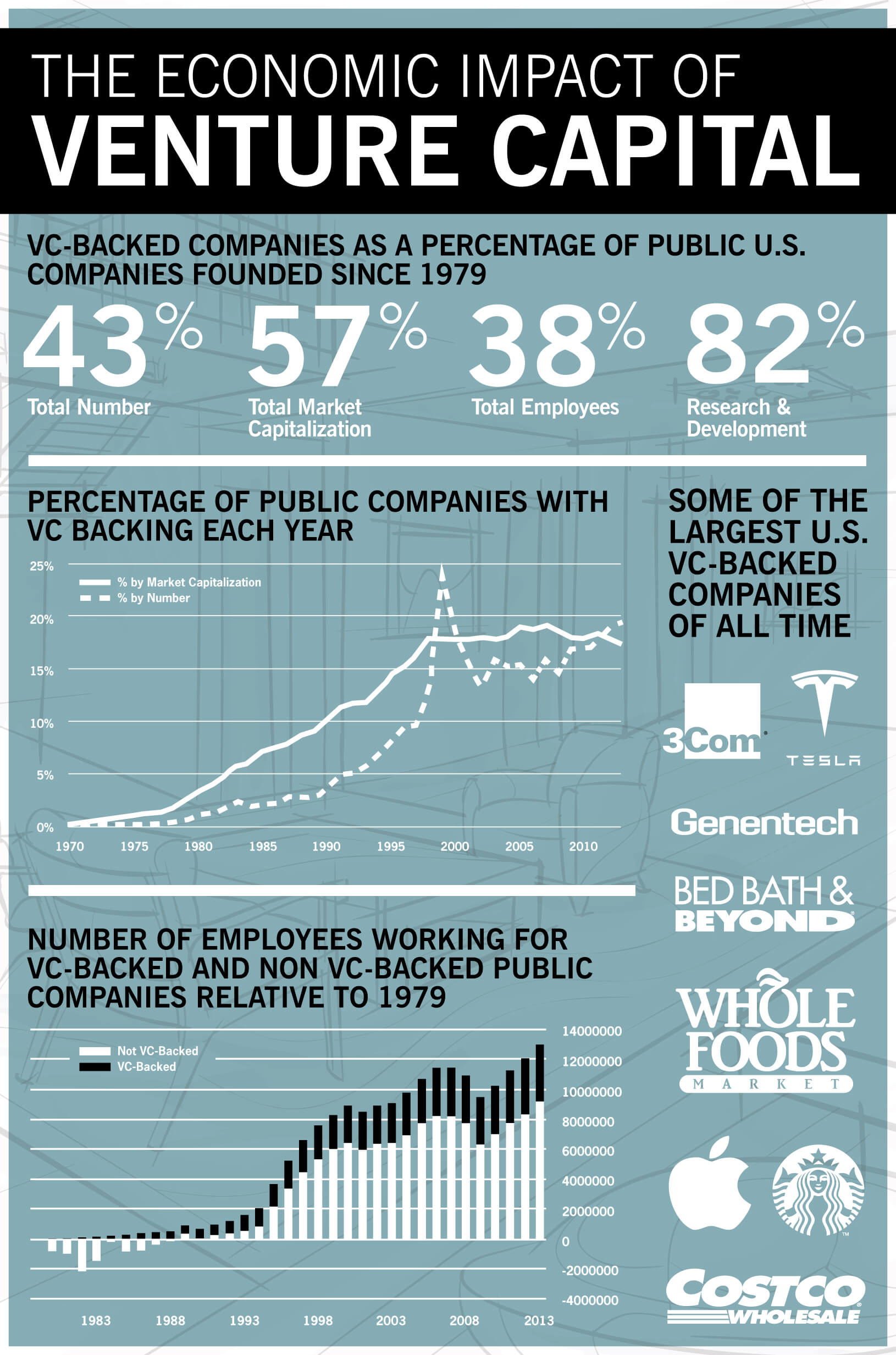How to Become a Vc Without Money of My Own to Invest

Venturing into the world of venture capital (VC) without personal funds to invest may seem like an insurmountable challenge, but it is far from impossible. The VC industry thrives on relationships, expertise, and strategic thinking, making it accessible to those who can leverage these assets effectively. This article explores practical pathways to becoming a VC without relying on personal capital, such as building a strong network, gaining industry experience, and partnering with established investors. By focusing on value creation and demonstrating a deep understanding of startups and markets, aspiring VCs can carve out a role in this competitive field, even without significant financial resources of their own.
How to Become a VC Without Money of My Own to Invest
Becoming a venture capitalist (VC) without having your own money to invest may seem challenging, but it is possible with the right strategies and mindset. Venture capitalists typically invest in startups and early-stage companies, but if you lack personal funds, you can still enter the field by leveraging your skills, network, and creativity. Below, we explore actionable steps and key insights to help you achieve this goal.
See Also How to Start a Micro Vc Fund
How to Start a Micro Vc Fund1. Build a Strong Network in the Startup Ecosystem
Networking is one of the most critical aspects of becoming a VC. Start by attending industry events, joining startup communities, and connecting with founders, investors, and other professionals in the ecosystem. A strong network can help you gain credibility and access to investment opportunities. Over time, you can position yourself as a trusted advisor or intermediary, which may lead to partnerships with established VCs or angel investors.
2. Leverage Your Expertise and Add Value
If you have expertise in a specific industry or domain, use it to your advantage. Many startups seek advisors or mentors who can provide strategic guidance. By offering your knowledge and skills, you can build relationships with founders and potentially earn a stake in their companies. This approach allows you to participate in the venture capital world without needing your own capital.
See Also What Are Examples of Corporate Venture Capital Cvc Firms Worldwide
What Are Examples of Corporate Venture Capital Cvc Firms Worldwide3. Partner with Established Investors
Collaborating with experienced investors is another way to break into the VC space. You can offer to source deals, conduct due diligence, or provide operational support in exchange for a share of the profits. This arrangement allows you to gain hands-on experience and build a track record, which is essential for attracting future opportunities.
4. Explore Syndicate Investing
Syndicate investing involves pooling resources with other investors to fund startups. Platforms like AngelList allow you to join syndicates led by experienced investors. While you may not have your own money to invest, you can contribute by identifying promising startups or assisting with deal flow. Over time, successful syndicate investments can help you establish a reputation in the VC community.
See Also How long does it take from finalists to actual notification of acceptance at the TechStars incubator?
How long does it take from finalists to actual notification of acceptance at the TechStars incubator?5. Create a Virtual VC Fund
A virtual VC fund is a creative way to enter the venture capital space without significant capital. You can create a platform or community where you curate and showcase high-potential startups to other investors. By acting as a deal facilitator, you can earn fees or equity stakes in the startups you promote. This approach requires strong marketing and networking skills but can be a viable path to becoming a VC.
| Strategy | Key Action | Outcome |
|---|---|---|
| Build a Strong Network | Attend events, connect with founders and investors | Gain credibility and access to deals |
| Leverage Expertise | Offer advisory services to startups | Earn equity stakes without investing |
| Partner with Investors | Provide deal sourcing or due diligence support | Share in profits and gain experience |
| Syndicate Investing | Join investor syndicates on platforms like AngelList | Build a track record and reputation |
| Create a Virtual VC Fund | Curate and promote startups to other investors | Earn fees or equity stakes |
How much money do you need to start a VC fund?

Minimum Capital Required to Start a VC Fund
Starting a venture capital (VC) fund typically requires a significant amount of capital. The minimum amount varies depending on the fund's strategy, target market, and operational costs. Here are some key considerations:
- Initial Fund Size: Most VC funds start with at least $10 million to $20 million to make meaningful investments and cover operational expenses.
- Management Fees: Typically, VC funds charge a 2% annual management fee on the total fund size, which covers salaries, office space, and other overhead costs.
- Legal and Administrative Costs: Setting up a VC fund involves legal fees, compliance costs, and administrative expenses, which can range from $50,000 to $200,000.
Key Expenses When Launching a VC Fund
Launching a VC fund involves several upfront and ongoing expenses. Below are the primary costs to consider:
- Legal and Compliance Fees: Drafting fund documents, registering with regulatory bodies, and ensuring compliance can cost $50,000 to $150,000.
- Operational Costs: This includes office space, software, and salaries for analysts and partners, which can amount to $500,000 to $1 million annually.
- Deal Sourcing and Due Diligence: Travel, research, and due diligence for potential investments can add up to $100,000 to $300,000 per year.
How to Raise Capital for a VC Fund
Raising capital for a VC fund requires a strong network and a compelling pitch. Here’s how to approach it:
- Limited Partners (LPs): Identify and pitch to high-net-worth individuals, family offices, and institutional investors who can commit significant capital.
- Track Record: Highlight your team’s investment experience and past successes to build credibility.
- Fund Strategy: Clearly articulate your fund’s focus, such as early-stage tech startups or growth-stage companies, to attract aligned investors.
Factors Influencing the Size of a VC Fund
The size of a VC fund depends on several factors, including market conditions and investor appetite. Key considerations include:
- Market Opportunity: Larger funds are needed for industries like biotech or deep tech, where investments are capital-intensive.
- Investor Demand: Strong interest from LPs can allow you to raise a larger fund, while limited interest may cap the size.
- Fund Strategy: A seed-stage fund may require less capital than a late-stage fund due to smaller investment sizes.
Challenges of Starting a VC Fund with Limited Capital
Starting a VC fund with limited capital can be challenging but not impossible. Here are some hurdles and solutions:
- Limited Deal Flow: Smaller funds may struggle to attract high-quality startups. Focus on niche markets or emerging industries to stand out.
- High Operational Costs: Minimize expenses by outsourcing tasks or sharing office space with other funds.
- Investor Skepticism: Build trust by showcasing a strong team and a clear, differentiated investment thesis.
Can normal people invest in VC?

What is Venture Capital (VC) Investment?
Venture Capital (VC) investment involves providing funding to early-stage, high-potential startups in exchange for equity. This type of investment is typically associated with high risk but also the potential for high returns. Normal people can participate in VC investments, but there are certain barriers and considerations to keep in mind.
- High-risk, high-reward: VC investments are speculative and often involve startups that may fail.
- Equity ownership: Investors receive a share of the company in return for their capital.
- Long-term commitment: VC investments typically require a long holding period before any returns are realized.
How Can Normal People Access VC Investments?
While traditionally VC investments were limited to accredited investors or institutional players, there are now more accessible avenues for normal people to participate. These include crowdfunding platforms, VC funds, and syndicate networks.
- Crowdfunding platforms: Websites like AngelList and SeedInvest allow individuals to invest small amounts in startups.
- VC funds: Some funds are open to non-accredited investors, though they may have higher fees.
- Syndicate networks: Groups of investors pool resources to invest in startups, often led by experienced angel investors.
What Are the Risks for Normal People Investing in VC?
Investing in VC as a normal person comes with significant risks, including the potential for total loss of capital. Startups are inherently risky, and many fail within the first few years.
- Liquidity risk: VC investments are illiquid and cannot be easily sold or converted to cash.
- Market risk: Startups are highly sensitive to market conditions and competition.
- Dilution risk: Future funding rounds may dilute the investor's equity stake.
What Are the Benefits of VC Investing for Normal People?
Despite the risks, VC investing offers unique benefits, such as the potential for outsized returns and the opportunity to support innovative ideas.
- High returns: Successful startups can provide exponential returns on investment.
- Diversification: Adding VC investments to a portfolio can diversify risk.
- Supporting innovation: Investors can contribute to groundbreaking technologies and businesses.
What Should Normal People Consider Before Investing in VC?
Before diving into VC investments, normal people should evaluate their financial situation, risk tolerance, and investment goals.
- Financial stability: Ensure you have sufficient savings and are not overexposing yourself to high-risk investments.
- Due diligence: Research startups thoroughly and understand their business models.
- Professional advice: Consult with financial advisors or experienced investors to make informed decisions.
Do you need money to become a venture capitalist?

Do You Need Personal Capital to Start as a Venture Capitalist?
While having personal capital can be advantageous, it is not an absolute requirement to become a venture capitalist. Many venture capitalists start by working for established firms where they gain experience and build a network. However, if you aim to start your own venture capital firm, you will need access to funds. Here are some key points:
- Personal Wealth: If you have significant personal wealth, you can use it to invest in startups directly or as seed capital for your firm.
- Raising Funds: You can raise capital from limited partners (LPs) such as institutional investors, family offices, or high-net-worth individuals.
- Experience and Reputation: Building a strong track record in the industry can help you attract investors even if you lack personal funds.
What Are the Alternatives to Using Personal Money?
If you do not have personal funds, there are alternative ways to enter the venture capital industry. These methods often require building credibility and leveraging relationships. Consider the following:
- Join a VC Firm: Start by working at an established venture capital firm to gain experience and access to deal flow.
- Angel Investing: Begin as an angel investor with smaller amounts of capital to build a portfolio and reputation.
- Syndicate Investments: Participate in investment syndicates where multiple investors pool resources to fund startups.
How Important Is Networking in Venture Capital?
Networking is a critical component of becoming a successful venture capitalist, especially if you lack personal funds. Building relationships can open doors to opportunities and resources. Key aspects include:
- Industry Connections: Strong ties with entrepreneurs, investors, and industry experts can help you identify promising startups.
- Access to Deals: A robust network can provide access to exclusive investment opportunities.
- Mentorship: Learning from experienced venture capitalists can accelerate your growth in the field.
Can You Start Venture Capital Without Prior Experience?
While prior experience is beneficial, it is not always mandatory to start a career in venture capital. However, gaining relevant skills and knowledge is crucial. Here’s how you can approach it:
- Educational Background: Pursue courses or certifications in finance, entrepreneurship, or venture capital.
- Internships: Gain hands-on experience through internships at VC firms or startups.
- Build a Track Record: Start by investing in small deals or advising startups to demonstrate your capabilities.
What Role Does Fundraising Play in Venture Capital?
Fundraising is a cornerstone of venture capital, especially if you lack personal funds. It involves securing capital from external sources to invest in startups. Key steps include:
- Identify LPs: Target institutional investors, family offices, or wealthy individuals who are willing to invest in your fund.
- Pitch Your Strategy: Clearly articulate your investment thesis and how you plan to generate returns.
- Build Trust: Demonstrate your expertise and reliability to attract and retain investors.
What is the minimum investment for VC funds?

What Determines the Minimum Investment for VC Funds?
The minimum investment for venture capital (VC) funds varies significantly depending on several factors. These include the fund's size, the target investors, and the fund's strategy. Typically, VC funds require a substantial commitment due to their high-risk, high-reward nature. Below are key factors that influence the minimum investment:
- Fund Size: Larger funds often require higher minimum investments, sometimes ranging from $1 million to $10 million or more.
- Investor Type: Institutional investors, such as pension funds or endowments, are usually expected to commit larger amounts compared to individual investors.
- Fund Strategy: Early-stage funds may have lower minimums compared to growth-stage or late-stage funds, as they target smaller, riskier startups.
Typical Minimum Investment Amounts in VC Funds
The minimum investment in VC funds can range widely, but there are some common benchmarks. For instance:
- Early-Stage Funds: Minimum investments can start at $250,000, targeting smaller, high-potential startups.
- Mid-Stage Funds: These often require $500,000 to $1 million, focusing on companies with proven traction.
- Late-Stage Funds: Minimums can exceed $1 million, as these funds invest in more established companies nearing an exit.
Why Do VC Funds Set High Minimum Investments?
VC funds set high minimum investments to ensure they attract serious, committed investors. This approach helps them manage administrative costs and maintain a focused investor base. Key reasons include:
- Administrative Efficiency: Managing fewer, larger investments reduces operational complexity.
- Investor Commitment: High minimums ensure investors are financially capable of bearing the risks associated with VC investments.
- Fund Focus: Larger commitments align with the fund's long-term investment horizon and strategy.
How Can Individual Investors Participate in VC Funds?
Individual investors often face challenges meeting the high minimum investment requirements of traditional VC funds. However, there are alternative ways to participate:
- Syndicates: Platforms like AngelList allow individuals to pool resources and invest smaller amounts collectively.
- VC-Backed ETFs: Exchange-traded funds that invest in venture-backed companies offer a lower entry point.
- Micro-VC Funds: These funds cater to smaller investors, with minimums as low as $25,000.
What Are the Risks of High Minimum Investments in VC Funds?
High minimum investments in VC funds come with inherent risks, particularly for individual investors. These risks include:
- Liquidity Risk: VC investments are typically illiquid, with capital locked up for 7-10 years.
- Concentration Risk: A large portion of an investor's portfolio may be tied to a single fund, increasing exposure to potential losses.
- Performance Risk: Not all VC funds deliver high returns, and some may underperform or fail entirely.
Frequently Asked Questions (FAQs)
How can I become a venture capitalist without having my own money to invest?
Becoming a venture capitalist without personal funds is challenging but possible. One approach is to work within the venture capital industry in roles such as an analyst or associate. These positions allow you to gain experience, build a network, and understand the intricacies of investing. Over time, you can leverage your expertise and connections to raise funds from external investors, such as high-net-worth individuals or institutions, to start your own fund. Additionally, you can partner with experienced investors who may provide the capital while you contribute your skills and knowledge.
What skills are essential to become a venture capitalist without personal capital?
To succeed as a venture capitalist without your own money, you need a strong foundation in financial analysis, market research, and deal structuring. Equally important are networking and relationship-building skills, as these will help you attract investors and identify promising startups. A deep understanding of specific industries, such as technology or healthcare, can also set you apart. Additionally, honing your negotiation and communication skills is crucial for convincing stakeholders to trust you with their capital.
Can I start a venture capital fund without personal investment?
Yes, it is possible to start a venture capital fund without personal investment, but it requires a strategic approach. You can begin by creating a compelling investment thesis and a detailed business plan that outlines your vision and strategy. Next, focus on building a strong track record by working with startups or other venture capital firms. Once you have credibility, you can approach limited partners (LPs), such as family offices, pension funds, or institutional investors, to raise the necessary capital. Your ability to demonstrate expertise and potential returns will be critical in securing their support.
What are the risks of becoming a venture capitalist without personal funds?
Becoming a venture capitalist without personal funds carries several risks. First, you may face challenges in gaining the trust of investors, as they often prefer to work with individuals who have skin in the game. Second, without personal capital, your ability to make independent decisions may be limited, as you will need to align with the interests of your investors. Additionally, the pressure to deliver strong returns can be intense, and failure to do so may harm your reputation and future fundraising efforts. It’s essential to carefully weigh these risks and ensure you have a solid plan to mitigate them.
Leave a Reply

Our Recommended Articles